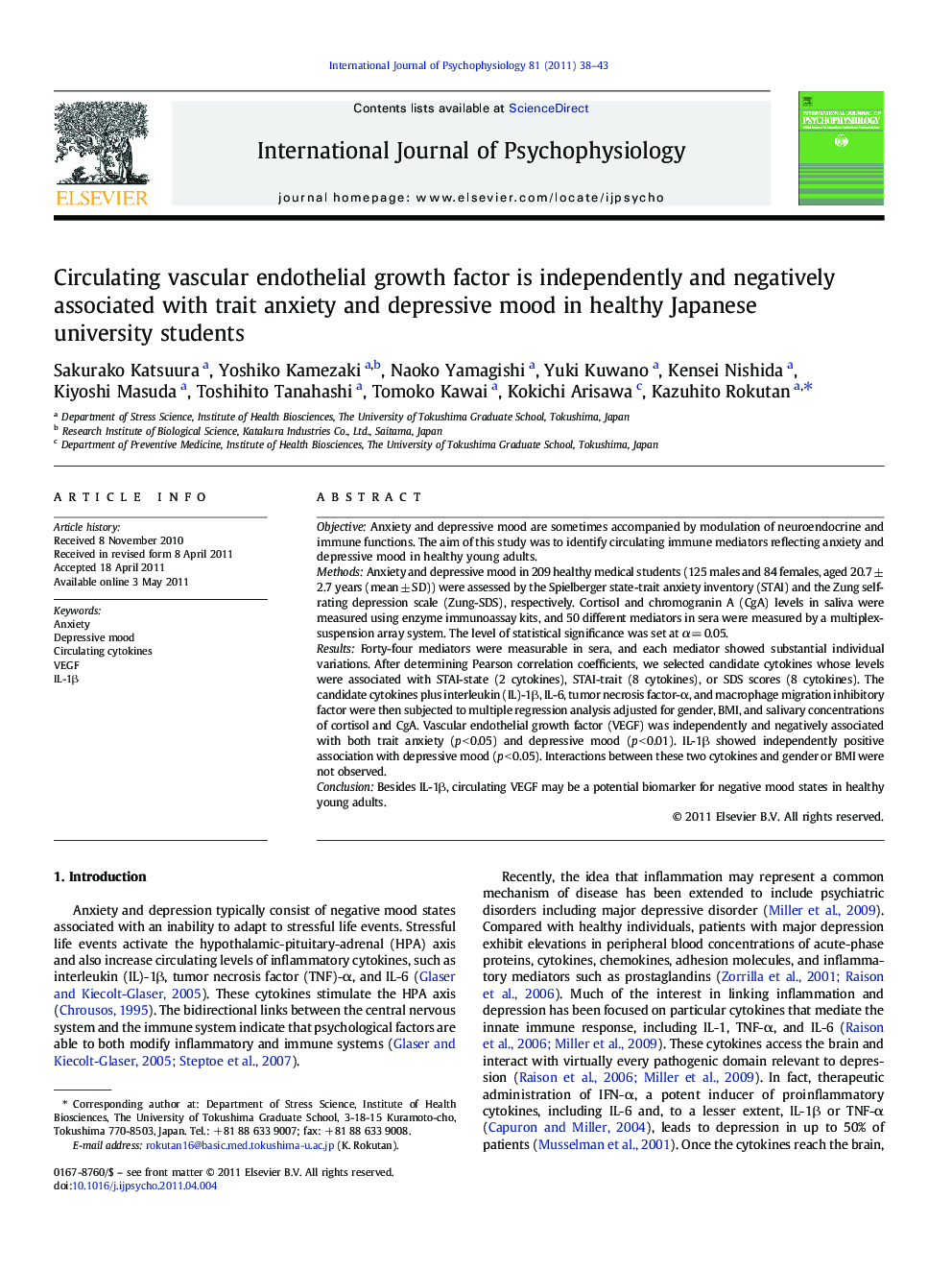| Article ID | Journal | Published Year | Pages | File Type |
|---|---|---|---|---|
| 930141 | International Journal of Psychophysiology | 2011 | 6 Pages |
ObjectiveAnxiety and depressive mood are sometimes accompanied by modulation of neuroendocrine and immune functions. The aim of this study was to identify circulating immune mediators reflecting anxiety and depressive mood in healthy young adults.MethodsAnxiety and depressive mood in 209 healthy medical students (125 males and 84 females, aged 20.7 ± 2.7 years (mean ± SD)) were assessed by the Spielberger state-trait anxiety inventory (STAI) and the Zung self-rating depression scale (Zung-SDS), respectively. Cortisol and chromogranin A (CgA) levels in saliva were measured using enzyme immunoassay kits, and 50 different mediators in sera were measured by a multiplex-suspension array system. The level of statistical significance was set at α = 0.05.ResultsForty-four mediators were measurable in sera, and each mediator showed substantial individual variations. After determining Pearson correlation coefficients, we selected candidate cytokines whose levels were associated with STAI-state (2 cytokines), STAI-trait (8 cytokines), or SDS scores (8 cytokines). The candidate cytokines plus interleukin (IL)-1β, IL-6, tumor necrosis factor-α, and macrophage migration inhibitory factor were then subjected to multiple regression analysis adjusted for gender, BMI, and salivary concentrations of cortisol and CgA. Vascular endothelial growth factor (VEGF) was independently and negatively associated with both trait anxiety (p < 0.05) and depressive mood (p < 0.01). IL-1β showed independently positive association with depressive mood (p < 0.05). Interactions between these two cytokines and gender or BMI were not observed.ConclusionBesides IL-1β, circulating VEGF may be a potential biomarker for negative mood states in healthy young adults.
Research highlights► Profile of 44 circulating mediators was analyzed in healthy medical students. ► Trait anxiety and depressive mood were negatively associated with VEGF levels. ► Depressive mood was also positively associated with IL-1β levels. ► Reduced VEGF may be a marker for negative mood states in healthy young Japanese adults.
